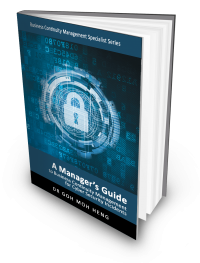Malware
1. Malicious Software (Malware) can come in various forms, but their objective is the same: The cyber criminal either wants to take over, damage, siphon data or gain additional insight through the use of malware.


|

2. The term malware is a contraction of malicious software. Put simply, malware is any piece of software that was written with the intent of doing harm to data, devices or to people.
Source: (21st Century Software, 2010)
3. Malware refers to any type of malicious software that tries to infect a computer or mobile device. Hackers use malware for any number of reasons such as, extracting personal information or passwords, stealing money, or preventing owners from accessing their device.
Source: (AVAST, 2017)
4. Malicious software (malware) is a favorite tool of threat actors. Malware comes in all shapes and sizes, but perhaps can best be characterized by what it is intended to do. It is designed to take over, damage, and/or exfiltrate data from a system, as well as attack other systems, and/or gain additional insight into a system or its network.
Source: (Verizon, 2017)